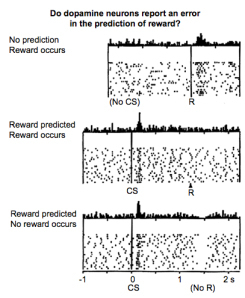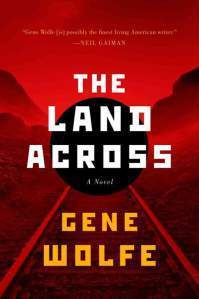Matt Weber's Blog, page 20
February 22, 2014
wattpad
I really enjoyed Joanna Penn’s recent interview with Ashleigh Gardner of WattPad–enough, actually, that I set up an account and started to check out the service. The tl;dr for people who don’t listen to Joanna’s podcast: WattPad is a social network set up around serializing fiction, which makes it a little like a mashup of Facebook and blogging. If Ashleigh is to be believed, it’s growing like kudzu and has a kind of shockingly favorable reader:writer ratio (about 9:1). You can’t charge anyone for the read, so you have to figure out how you’re going to convert readers to sales on your e-publishing platform(s) of choice, but the line from reading free fiction to buying fiction is a lot clearer than the line from, say, following someone on Twitter. That makes it a viable option for making a series starter permanently free, and so it all seems pretty interesting.
I’d say they do the core things right. The story interface on the mobile app is readable–if you don’t care about the social aspect of it, you can pretty much pretend you’re in your Kindle app. It’s not so great on the PC, which is just to say it’s cluttered in the way you’d expect from a social network. But who reads on their computer anyway? The problem with the mobile app is that some basic things are hard; e.g., there’s no way back to the home screen, so if you’ve just binge-searched a bunch of authors, you have to go back through them (or maybe quit the app?) if you want to do anything except search. I imagine these problems will get sanded down in time.
One thing that’s really surprised me: I’ve generally been underwhelmed by the quality of self-published fiction on the major e-publishing platforms. In my highly subjective judgment and not compendious experience, well-respected authors who are making a living at it seem to be hovering around the 50th percentile of quality relative to traditionally published work. (I haven’t read Joanna’s work. It’s also worth noting that I tend to start with the first book in a series, written almost by definition when the author is least experienced. So some of the people I sniff at might be quite skilled now.) Anyway, I’ve already found a couple of titles on WattPad whose prose really seems to be a cut above–and I’m not talking about Cory Doctorow or Margaret Atwood or people you’ve heard of (Brandon Sanderson is also on the site, offering WARBREAKER for free). I haven’t gotten deeply enough into either one to see if the stories work at higher levels, but solid writing at the sentence level is not something I’m used to in self-publishing, and I’m glad to find it so easily. And free!
So anyway. I’ll probably put something short up, just to see what happens. You know, in my copious free time.


February 21, 2014
SATORI now available on Comixology!
My co-creator, Mike LaRiccia, has put our 2008 comic, SATORI, on Comixology for $1.99. Since he mentioned this to me, I’ve just joined Comixology—I can’t say much about the PC version of the app, since it seems my information hasn’t cross-pollinated from the mobile app to the website, but the mobile reader is beautiful and there are a ton of issue #1s of great comics for free. So, even if you don’t want to read SATORI, and even—especially!—if you don’t like reading comics, I would strongly recommend joining Comixology and perusing the free issues. Here, I’ll even help you out with a few pointers:
SAGA: Fantasy space opera family drama. Seriously, do not even consider clicking away from this post before you download it.
THE WALKING DEAD: The state of the art in zombie survival horror; inspiration for the AMC show of the same name.
BONE: Reasonably funny screwball comedy, evolving over the course of 1000 pages or so into beautifully drawn and written (yet still funny) epic fantasy.
PLANETARY: A superhero team of fantastic archaeologists, striving to keep the world strange.
RASL: Dimension-warping soap opera slash conspiracy thriller slash love letter to Nikola Tesla.
WANTED: The logical, horrible extension of superhero power fantasies; inspiration for the really pretty different James McAvoy/Angelina Jolie movie of the same name.


February 14, 2014
prelude to a sting
Do you remember the girls on the slave boat, up on the lake? When I think about what I have done, I think of the plan they sculpted from whispers out on the dark water. The slavers had bought the police, of course, and the girls themselves were part of the currency; but that meant the girls could whisper to the police as they did to one another, and if the police learned something valuable enough, they might do a favor even for a slave. We listened to them so long that we grew parched and drank muddy water from the lake shore, and watched the kiss they shared, and then crept back to camp, and a few weeks later the Dwarf Island sting was all over the papers and the entire Shore Force was bathing in gold and glory.
I like to think the wit and bravery of those whispering girls bought their freedom. But, even more than that, I like to think that freedom went to the dimmer, more timid children, who could not buy it but were owed it anyway.
To me, this explains what I have done. More likely, the turns of mind that bring someone so sharply up against her trade and country are not so cleanly drawn. But I am satisfied.
(From the story in progress, tentatively titled “Continents of Summer, Firmaments of Sun”)


February 13, 2014
how not to cook a wolf
Holy shit, THREE KINGDOMS is starting to go full Westeros on me. (Not pictured: The part where they talk about how losing wives and children is like losing clothes, but losing “brothers” [-in-arms] is like losing a limb.)
NB: Liu Xuande is the big damn hero of this story, as I understand it.


February 12, 2014
“The essence of my parents cannot be thrown away!”
February 8, 2014
more lupinity
“It was decided to terminate the experiment.”
“Just forget about it?” Little Tib asked.
“The experimental material would be sacrificed to prevent the continuance and possible further development of the phenomena.”
“I don’t understand.”
“The brains and spinal cords of the boys and girls involved would be turned over to the biologists for examination.”
“Oh, I know this story,” Little Tib said. “The three Wise Men come and warn Joseph and Mary, and they take Baby Jesus to the Land of Egypt on a donkey.”
Gene Wolfe, “The Eyeflash Miracles”


February 7, 2014
one wolf anticipates another
Each year he came to Beech Hill by bus, with an overnight stop. The stop had, itself, become a ritual. In fact, the entire trip from the moment he carried his bag out of the apartment was marked with golden milestones, events that were—so strong was the anticipation of pleasure—pleasures themselves.
“Beech Hill,” Gene Wolfe (1972)
“A neural substrate of prediction and reward,” Wolfram Schultz, Peter Dayan, & P. Read Montague (1997)


February 2, 2014
the land across
One of these days I’m going to read a Gene Wolfe book properly–read it for the first time to appreciate the lines, then again, immediately, to see if I can figure out how the engine works. (I tried this once with PEACE, but got derailed.) Probably not this time, though, not because I didn’t enjoy THE LAND ACROSS but because reading time is precious, and there are so many books. So for now I’m just making a few notes on things to watch for again on reread.
Obviously ages are meant to be important clues to something or another. My main insight on this is unsolved but, I think, important: Wolfe is at pains to let us know that Grafton is in his mid-twenties max, in the age of iPhones, meaning he’s substantially younger than me. But, as several Goodreads reviews gripe about, his diction is archaic (“kept my yap shut,” “swell,” “bet the rent,” “dope them out,” “smart off,” &c.). For a prose stylist like Wolfe, this can’t possibly be unintentional. But I freely admit I don’t have any idea what it means. (Is the whole thing a translation from German, or one of Grafton’s other languages? What would that mean?)
Coming off thinking of PEACE, you can’t help but notice that the layout of Puraustays and the capital is an awful lot like a cemetery–no straight streets, a strip of trees and flowers around each building, &c. I’ll have to go back and pay attention to this. (The description of City Hall on p. 14 is notably weird.)
The (were?)wolves of Puraustays have a decent shot at being some sort of representative of Wolfe himself–he’s done this before, for sure in THE FIFTH HEAD OF CERBERUS and I think elsewhere as well. Again, though, I’d have to go back to figure out the significance of this.
How did he figure out the head of the Unholy Way? (This might be mentioned fairly explicitly in the text, I just don’t remember.)
What’s with Grafton’s dad/the third border guard? What about his mom? What does JAKA stand for?
Early in the book, Kleon beats up Grafton handily. Toward the end, the tables are turned. What changed?
Plenty more to think about, for sure. This is (one of the reasons) why I love Wolfe. One day, maybe I’ll be smart enough to read him.
If you’re not familiar with Wolfe and this has whetted your interest, maybe check out this NPR article on the book. For people not heavily into genre, I think this and most of his recent books–AN EVIL GUEST, THE SORCERER’S HOUSE, HOME FIRES–would be good introductions to Wolfe, as would PEACE; for people who are pretty comfortable getting thrown into deep water, just go straight for the Book of the New Sun (a four-book series starting with THE SHADOW OF THE TORTURER, sometimes collected in a two-volume series starting with SHADOW & CLAW).

















